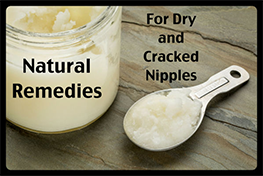Illnesses or irritants in your environment can cause nipple problems. These problems, including those involving the, can occur in men and women.
This article addresses nipple problems in both sexes but not in women who are breast-feeding or who have just had a baby.Many nipple problems have nothing to do with, but they could indicate a serious underlying condition. Always see a doctor if you have nipple discharge and you aren’t pregnant or breast-feeding. The defines nipple discharge as any fluid that comes out of the nipple. It can appear:. milky.
clear. yellow. green. bloodyOther types of nipple problems include:. irritation. soreness.
cracking. bleeding. swelling. changing shape. You might see discharge, such as pus or a white, watery fluid. You may also feel pain, itchiness, or swelling in your nipples.
See your doctor right away if you have any discharge at all or discomfort that lasts for more than a few days.You may also notice changes in the shape of your nipple or areola, which is the skin around your nipple. These changes may include puckering or dimpling of the skin. Always discuss changes like this with your doctor.In women, hormone fluctuations during the menstrual cycle can cause that lasts for a few days. You should talk to your doctor if it bothers you.
There are a variety of circumstances that could lead to nipple problems, including:. infections. small, benign, or noncancerous, tumors., or an underactive thyroid.
ectasia, which is a widening of the milk ducts. a tumor. an injury to the breast tissueYour nipples can become irritated, sore, or even cracked due to friction. Running and sexual activity are sometimes causes of temporary nipple problems due to vigorous rubbing.A severe blow to your breast or unusual pressure on the chest can also cause nipple discharge.Newborn babies sometimes have discharge from their nipples. This is because they absorb their mother’s hormones as she prepares for breast-feeding. Another name for nipple discharge in babies is “witch’s milk.” Doctors don’t consider this a dangerous condition. It should go away promptly.

Your doctor will examine your nipple and areola. They’ll ask you:. about medicines you’re taking. about any changes in your diet. whether you might be pregnant.
Can You Still Breastfeed If Your Nipples Are Bleeding?


about any recent exercise or activity that could have irritated your nipplesDuctographyIf you have nipple discharge, your doctor may perform a test to find out how many of the ducts that bring fluid to your nipples are involved. This is called a ductography. During a ductography, your doctor injects dye into the ducts in your breasts and then takes an to monitor the ducts’ function. MammogramYour doctor may want you to have a mammogram. A is an imaging test that records an image of the tissues inside your breast.
This exam can reveal if there’s a growth inside of your breast causing the problem. Skin biopsyIf your doctor thinks you may have Paget’s disease, which is a rare breast cancer, they may order a skin. This will involve removing a tiny piece of skin from your breast for examination.Other tests your doctor might order include:. a. a. a.
an. The treatment for your nipple problem will depend on its cause. InfectionYour doctor will treat an infection of the nipple with the appropriate medicine.
For example, a bacterial infection will require antibiotics. If you have a fungal infection, such as, your doctor will prescribe an antifungal medicine. You can take these medicines by mouth or apply them to your skin. Small, benign tumorA noncancerous tumor doesn’t need removal, but your doctor may schedule you for regular checkups to monitor its growth. HypothyroidismHypothyroidism occurs when your body doesn’t produce enough thyroid hormones. This can upset the normal balance of chemical reactions in the body.
Replacing the missing hormones with a can treat hypothyroidism. EctasiaEctasia, or swollen milk ducts, usually goes away on its own. If you continue to experience it, you should ask your doctor about surgery to remove the swollen milk ducts. If ectasia causes a bacterial infection in your nipples, your doctor can prescribe an antibiotic. Pituitary tumorThe pituitary tumor known as a prolactinoma is usually benign, and it might not require treatment. Because of its location in your head, these tumors can press on the nerves that lead to your eyes, causing vision problems if they grow too large. In that case, surgery is necessary to remove them.Two medicines, bromocriptine and, can treat pituitary tumors by reducing the amount of prolactin in your system.
If the tumor doesn’t respond to medication or continues to grow, may be necessary. Paget’s disease of the breastThe treatment for this cancer depends on whether tumors reside elsewhere in the breast besides the nipple.
If there are no other tumors present, treatment includes surgery to remove the nipple and areola, followed by a series of radiation treatments on the whole breast. If your doctor finds other tumors, you may need a to remove the entire breast.